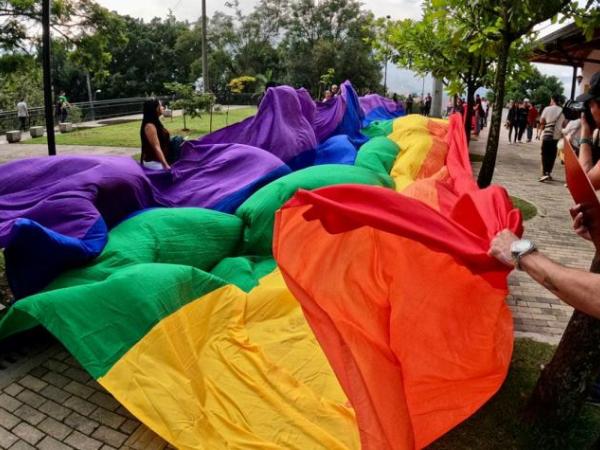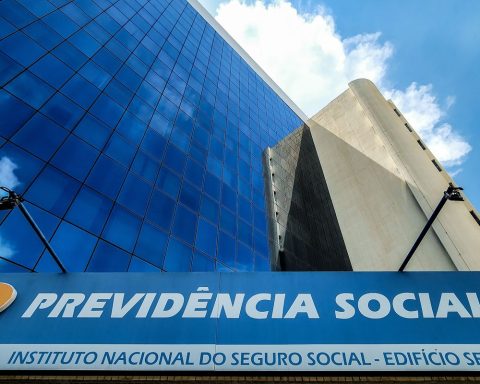In Colombia it is estimated that 501,000 older adults identify as LGBT (lesbians, gays, bisexuals and transsexuals), 85.1 percent live in urban centers, 66.5 percent are between 18 and 45 years old and most of them live in homes of strata 3, 4 and 6.
(Read: The wave of massive layoffs that is affecting the ‘startups’).
These are some of the data released last week by the National Administrative Department of Statistics (Dane), an entity that, within the framework of the celebrations of the International LGBTIQ+ Pride Day, presented data from the Great Integrated Household Survey (GEIH) and of the Social Pulse Survey focused on the LGBT population and their subjective well-being, an approach by the entity to eliminate the statistical invisibility to which this part of Colombians has been subjected.
According to Juan Daniel Oviedo, director of Dane, it is the first time that the prevalence of the LGBT population has been seen continuously, with further disaggregation of their welfare conditionsin comparison with the statistical data on sexual orientation and gender identity that were presented by the entity in 2020, in the National Survey on the Use of Psychoactive Substances (ENCSPA).
Thus, today there is not only information on more precise social and economic conditions of the LGBT population —although Oviedo acknowledges that they may still be exposed to underreporting—, but also an approach to the Welfare and labor market issues that concern these Colombians today.
Regarding the labor market, for example, the Dane revealed that for the period between May 2021 and April 2022, the global participation rate —which represents the pressure of the population willing to work— was 72.9 percent in the LGBT population, while that of the non-LGBT population was 65.6 percent; in contrast, the unemployment rate for those who identify as LGBT is around three points above that of the population that does not, standing at 16.1 percent.
“It is important to highlight that almost half of the 307,000 people that we find employed within the LGBT population are private employees. 153,000 people correspond to the occupational position of worker or private employee, which, compared to 41.2 percent of non-LGBT people, in the same position, shows that the employed LGBT population has a vocation to be closer to the conditions of formality in relative terms”, explained the director of the Dane.
The entity also presented the results of the Social Pulse Survey (January-May 2022) related to the LGBT community of legal age and who are heads of household. The study shows that this population has an educational level slightly higher than the average of the non-LGBT population of legal age. 24.4 percent of the 301,436 representative people are professionals or have postgraduate studies, while the non-LGBT population speaks of a 20.2 percent within this category.
This Dane survey, which investigates the perception of issues of well-being, safety and trust, also made it possible to identify among the LGBT community a more positive perception of their state of health, compared to the general population, with 80.2 percent who consider that this aspect of their lives is good or very good today, compared to 74.3 percent of those who do not recognize themselves as LGBT. Something that, according to the director of the Dane, may be associated with a higher educational level and greater participation in the labor market.
Another of the fields addressed by the Dane survey was the degree of satisfaction of the population regarding issues such as life in general (42.1% are somewhat satisfied and 39.1% satisfied); the economic situationa (38.3% are satisfied, nine points above the non-LGBT population); the employment situation (44.6% are satisfied); emotional life (75.8% are satisfied) and interpersonal relationships (81.9% are satisfied).
In the trust theme, the Social Pulse survey reveals that the LGBT population partially or completely trusts their neighbors (46.4%); does not trust strangers at all (71.1%) or people of another nationality (50.4%), although in the latter case this population seems to be a little more inclusive than those who do not recognize themselves as LGBT, who present in comparison a higher level of mistrust (54.5%). In addition, although LGBT people trust groups of people such as scientists a little more than the general population, for the most part they do so only partially (68.9%), only 17 percent of the population that took part in the survey says to do it completely. Health personnel inspire greater confidence in them (36.6%), while they view journalists with greater suspicion: 21.2 percent say they do not trust them.
On the other hand, 35.7 percent of the LGBT population say they feel insecure or insecure walking alone in their neighborhood at night; 21.5 percent, very insecure and 17.8 percent say that they never go out alone at night. A concern that, although for them in some cases it is greater, is also shared with people who do not identify as LGBT: 36.4 percent say they feel insecure; 17.6 percent, very insecure and 22.3 percent never go out alone at night.
These Dane data respond to advances that have occurred at the level of Colombian legislation in terms of inclusion, such as the LGBT Public Policy of 2018, and international guidelines on this issue that led to the addition of the identification of sexual orientation and gender identity. in the redesign of the Great Integrated Household Survey (GEIH).
(Also: The differences between working at home, telecommuting and remote work).
This is an example of the long road that the LGBTIQ+ community (acronyms that represent lesbian, gay, bisexual, transgender, transsexual, transvestite, intersex and queer people) in terms of recognition of rights in our country. For Germán Rincón Perfetti, defense attorney for this population, thanks to judicial advances today it is possible to say that Colombia,At least in legal matters, it is much more inclusive.
“Not only is it an inclusive country, but I could say that it is one of the most advanced countries in the world on LGBTI issues. I think it is very important to give the credits to the Colombian Constitutional Court, which is famous in the world, recognized and applauded for being a progressive and guaranteeing court.”, says the expert, who in 1992 presented the first guardianship on name change before the Court.
Through strategic litigation undertaken by organizations and individuals who have individually presented their cases to be resolved by the Court, setting precedents, the country has reached historic rulings that today allow, for example, same-sex couples can marry or establish de facto marital unions, have access to social security and pensions and can adopt; that trans people can change their name and sex in legal documents and can receive surgical procedures for body modifications covered by the health system; that LGBT children and adolescents are not excluded and discriminated against in school environments, in a long list of triumphs.
However, according to Juan Felipe Rivera, litigation coordinator for Colombia Diversa, a Colombian non-governmental organization that works for the welfare and legal and social recognition of the LGBT community, there is currently a very large gap between these rights and legal achievements and the daily life of LGBT people, which materializes in obstacles in the processes, such as notaries that refuse to marry same-sex couples or EPS that lengthen the paperwork in procedures such as gender transit.
ALEJANDRA LOPEZ SQUARES
@malelopezpl
















